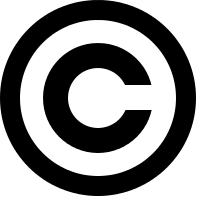 Image via Wikipedia
Image via Wikipedia
We are moving from a world with large, centralized, tyrannical power brokers that decide who can access what content, what they can do with it and even what you can say about it. They erect barriers to prevent competition and assert control over the world. They use things like digital rights management and lobbying congress to extend copyrights another 50 years.
Sometimes, they erect elaborate facades or hide behind innocuous concepts like "protecting innovation" or "preserving the rights of artists" but often these are transparent attempts at preserving their status quo grip on their power.
They control the means of production, the means of distribution and the means of consumption. Or, they did.
We stand at the threshold of a new era, however and as new means of communication open up, their power ebbs.
Production
It used to be that producing an LP (that's a big round thing you spin and hold a needle against to make sound in case you've never seen one ) was a costly process. The recording, mixing and production equipment was expensive. The knowledge to run it was relatively scarce. Only people with large amounts of capital could buy the machines and run them so they control what content gets produced. Of course, since they provided for the means of production they want to control the assets they produced so they can get paid back for their investment.
As the cost of the equipment used to produce content has plummeted, ownership has spread. As the number of tools has grown, they've become better and easier to use. Suddenly, the big players don't control the means of production and can't control the rest of the life-cycle. Though that doesn't stop them from trying. Which leads to distribution...
Distribution
In the old days, content was physically distributed. Atoms were transmuted. Molecules transported. The same powers that controlled production controlled distribution. They controlled where you could get the content and how much you had to pay for it. And yes, you had to pay for it.
Now the starting points and the end points have changed. They can't control either one. They don't control the highway and they can't charge tolls. You can teleport your content's bits straight to your consumers and charge whatever price you negotiate with them.
Consumption
As the super powerful watched technology evolve, they faced a dilemma. The end of their grip on power was clearly evident. Their days were numbered and they had to do something to stop the bleeding. They decided to try and convince you that it was important that you only consume content in approved ways. Ways approved by them. They invented DRM to restrict you from making copies of assets you purchased, to prevent you from playing back those assets on devices they hadn't extracted their pound of flesh from. They pulled the wool over your eyes as long as they could.
Fortunately, people are more aware than ever of the restrictions placed on them. Increasingly they are rejecting those restrictions and rejecting companies that try to enforce them. Tools like Boxee are providing new endpoints free of central control. codecs like Ogg/Vorbis free us up from paying royalties to transport content. Open source hardware creates devices that end users have complete control over.
Welcome to the new world. It's yours to take back.

![Reblog this post [with Zemanta]](http://img.zemanta.com/reblog_e.png?x-id=9c8e032d-bc37-416e-86d0-b7df17434bcb)

![Reblog this post [with Zemanta]](http://img.zemanta.com/reblog_e.png?x-id=e1ba1d21-d463-4bf2-b2f3-db62246470ae)

![Reblog this post [with Zemanta]](http://img.zemanta.com/reblog_e.png?x-id=8182e5d6-ac51-4dbb-9b89-6cd99fe2b812)


